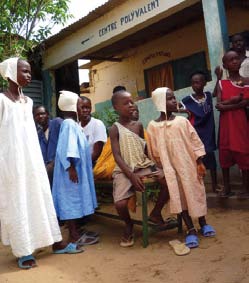News
Press Release: Waste Pickers and Allies demand that the CDM Executive Board stop ducking its responsibilities (English and Spanish)
This Thursday: Waste Pickers at the Frontline of Climate Change
Thursday, Dec. 1, 10 a.m.
Howard College, Shepstone 4, University of KwaZulu-Natal Waste Pickers reduce greenhouse gas emissions and save raw materials through recycling. They are a real human force to mitigate climate change and offer a necessary alternative to polluting, waste-to-energy technologies. Representatives from the Global Alliance of Waste Pickers will talk about their realities and views on the climate and waste policy situation, including a critical perspective on the CDM and the Green Climate Fund.
Suman More: A Garbage Worker
Carta de Marlen Chacon, desde COP17 (Spanish and English)
 Hoy al ser la una de tarde aqui en Durban, atuvimos en la reunion de la junta directiva del MDL, y varios de nosotros tuvimos intervención, desde ayer estuvimos trabajando mucho en como plantear nuestras preguntas ya que ellos argumentan cualquier cosa con tal de no dar una respuesta que los delate sobre lo que quieren seguir haciendo, para ellos solo sus proyectos tienen valides y…
Hoy al ser la una de tarde aqui en Durban, atuvimos en la reunion de la junta directiva del MDL, y varios de nosotros tuvimos intervención, desde ayer estuvimos trabajando mucho en como plantear nuestras preguntas ya que ellos argumentan cualquier cosa con tal de no dar una respuesta que los delate sobre lo que quieren seguir haciendo, para ellos solo sus proyectos tienen valides y…
PRESS RELEASE – Waste Pickers and the anti-incineration movement speak up at COP17 (English and Spanish)
“Recicladores presentan proyecto de ley a favor de su sector” (Agencia de Noticias Fides)
SOUTH AFRICA – Recycling in South Africa – Tzu Chi
INDIA – Local waste pickers in UN meet – Sakaal Times
INDIA – The Indian Express: City wastepicker to attend climate change event in South Africa
Waste Picking in Africa – Volume 1.1 September 2011
India’s waste pickers – I saw a miracle
Same issues world over

Tshwane: power through networking
In the 1990s the Tshwane municipality in South Africa engaged in a number of failed projects with waste pickers. These included a project that hired waste pickers to make crafts out of recyclable material. It also included at a private company with interests in waste management helping waste pickers to set up cooperatives and run buy-back centres for the cooperatives. However the positive that came out of these failures was that waste pickers formed committees on dumps and this provided the base for independent organizing. But what lessons and openings for organisation emerged in this period?

Hands in trash, heads held high
A meeting in Dakar included delegates from countries across Africa such as Kenya, South Africa, Zimbabwe, Cote d’Ivoire, Guinea, Senegal, Niger, Rwanda, Congo, Togo, Burkina Faso and Chad. Participants discussed key problems such as child labour, waste pickers paying to collect waste instead of being paid, lack of knowledge of rights, lack of local government capacity to manage waste, and the privatization of waste collection.

